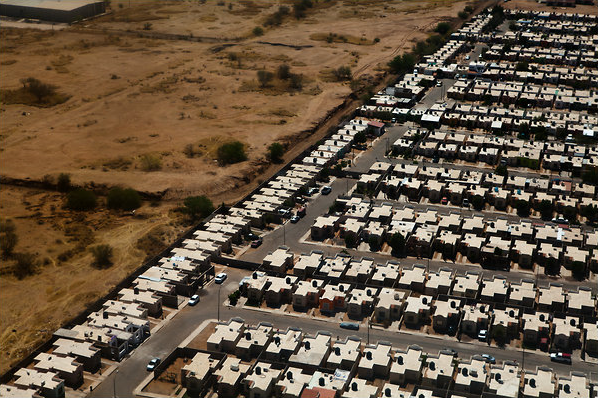A warming planet struggles to feed itself
By JUSTIN GILLIS
4 June 2011 CIUDAD OBREGÓN, Mexico — The dun wheat field spreading out at Ravi P. Singh’s feet offered a possible clue to human destiny. Baked by a desert sun and deliberately starved of water, the plants were parched and nearly dead. Dr. Singh, a wheat breeder, grabbed seed heads that should have been plump with the staff of life. His practiced fingers found empty husks. “You’re not going to feed the people with that,” he said. … Consumption of the four staples that supply most human calories — wheat, rice, corn and soybeans — has outstripped production for much of the past decade, drawing once-large stockpiles down to worrisome levels. The imbalance between supply and demand has resulted in two huge spikes in international grain prices since 2007, with some grains more than doubling in cost. Those price jumps, though felt only moderately in the West, have worsened hunger for tens of millions of poor people, destabilizing politics in scores of countries, from Mexico to Uzbekistan to Yemen. The Haitian government was ousted in 2008 amid food riots, and anger over high prices has played a role in the recent Arab uprisings.
Now, the latest scientific research suggests that a previously discounted factor is helping to destabilize the food system: climate change. Many of the failed harvests of the past decade were a consequence of weather disasters, like floods in the United States, drought in Australia and blistering heat waves in Europe and Russia. Scientists believe some, though not all, of those events were caused or worsened by human-induced global warming. Temperatures are rising rapidly during the growing season in some of the most important agricultural countries, and a paper published several weeks ago found that this had shaved several percentage points off potential yields, adding to the price gyrations. … [L]ately, the destabilization of the food system and the soaring prices have rattled many leading scientists. “The success of agriculture has been astounding,” said Cynthia Rosenzweig, a researcher at NASA who helped pioneer the study of climate change and agriculture. “But I think there’s starting to be premonitions that it may not continue forever.” …
A Warming Planet Struggles to Feed Itself
